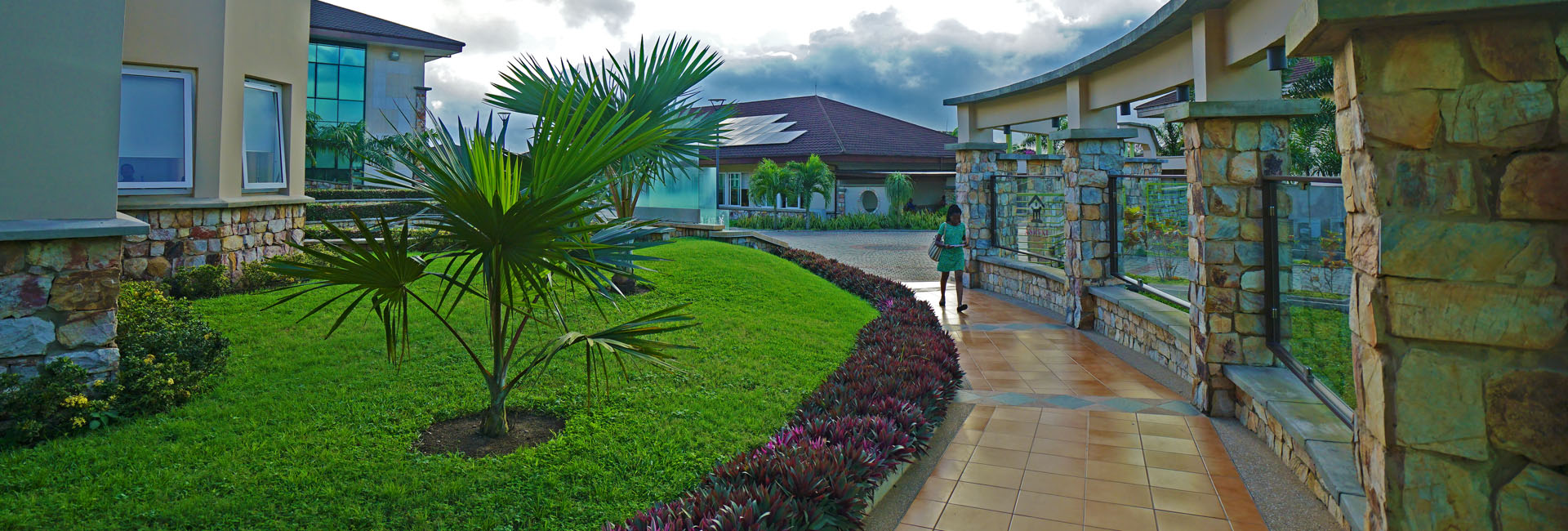
Ashesi University Provides Strong Examples in its Response to COVID-19
Ashesi University opened in 2002 with an audacious mission: to educate ethical, entrepreneurial leaders in Africa and cultivate within students the critical thinking and courage they would need to transform their continent. With generous support from faculty at world-class universities, Ashesi crafted a new approach designed to foster integrity and outstanding skills in an African context. Today, nearly 1,200 students from across Africa call Ashesi home, and the University is recognized as one of the continent’s finest.
As a result of the COVID-19 pandemic, Ashesi made the decision to close campus on March 15 and transitioned to online classes two weeks later. Ever since, the Ashesi team has worked diligently to support our community, ensure that we are moving forward in a way that does not disadvantage any students, and plan prudently to ensure that the university weathers this period sustainably.
Navigating a Temporary Campus Closure and Online Transition

Thoughtfulness in supporting students' diverse needs was at the forefront of Ashesi’s response to the COVID-19 pandemic. When Government of Ghana announced that schools would have to close, the University provided cross-country travel support for all local students and helped international students book quickly-diminishing flights home. Ashesi families and alumni also stepped up and opened their homes to international students who couldn’t return home for varying reasons. Students on full scholarships, were given stipends to support their upkeep off-campus.
The University also introduced support measures to enable online learning. Working with telecom companies in Ghana, Ashesi ensured that all students, faculty, and staff had data bundles for internet access. The University’s learning management system was also whitelisted across all major internet service providers, meaning it could be accessed at no cost.
With computer labs now inaccessible, Ashesi worked with courier companies to deploy laptops to students who needed them. And as families were affected by the pandemic, students with tuition arrears were allowed to defer payments.
Ashesi also reached out to third-party service providers—from landscaping teams to canteen operators—to understand how their teams would be impacted. And in addition to maintaining critical support like health insurance and paid medical leave for all University teams, Ashesi covered a portion of service vendors’ salary costs in the months following the shutdown to ensure their employees had income security through the pandemic.
Ashesi’s commitment to equity in its response to COVID-19 has extended beyond considerations for its immediate community. Admissions fees for the Class of 2024 were halved to minimize the financial burden on applicant families, and the University’s Financial Aid Office has committed to providing additional scholarship support for the Class.
Adjusting to Online Learning

Over the last two years, Ashesi had been building an ecosystem of software tools and resources. Teams across campus had been actively experimenting with virtual collaboration tools, new student information and learning management systems deployed for supporting teaching and learning, and nearly all university offices—from Career Services to Finance—had already implemented virtual tools meant to amplify their operations.
This prior experience with virtual tools paid off during the sudden shift to online coursework, with many students and faculty members building on systems that were already in place to identify new strategies for effective teaching and learning.
Faculty member Dr. Elena Rosca, who teaches Synthetic Biology, had her first online teaching experience with the formal restart of classes. Creating virtual replicas of experimentation spaces for the lab-based class allowed her to see an unexpected silver lining.
“My students and I realized that it would not be productive to use our live online sessions for walking through presentations and lectures,” she explained. “Sharing pre-recorded presentations with students ahead of classes enabled us to better use our live sessions for discussion, knowledge application, and problem-solving. We also found software that allows us to conduct lab simulations online, making it easier for my students to also practice on their own. The experience is helping me identify new strategies for productive teaching when campus reopens.”
Throughout the semester, the Provost’s Office at Ashesi met individually with all at-risk students and worked with faculty to track class attendance and participation across the entire student body. The University’s counseling team has also remained actively engaged online, helping students, staff, and faculty maintain their mental health as they navigate this period.
The Education Collaborative at Ashesi brings together institutions committed to transforming Africa through high-impact education innovation. The 2020 Education Collaborative virtual conference explored successful, context-specific university strategies and teaching approaches in the COVID-19 period and gathered insights on how best to capitalize on these innovations to create a “new normal” for institutions, in service of the continued transformation of the African continent.
Students and Alumni Respond to COVID-19

Ashesi’s students and graduates have taken meaningful steps to lessen the impact of COVID-19 and inspire positive change throughout their communities. Examples include:
Producing face masks at scale
Enoch Aworo '14 refocused his clothing company to produce non-surgical face masks, and is now able to manufacture over 300 per day. Enoch’s company has also donated hundreds of masks to various frontline organizations and is helping other companies' efforts to produce face masks.

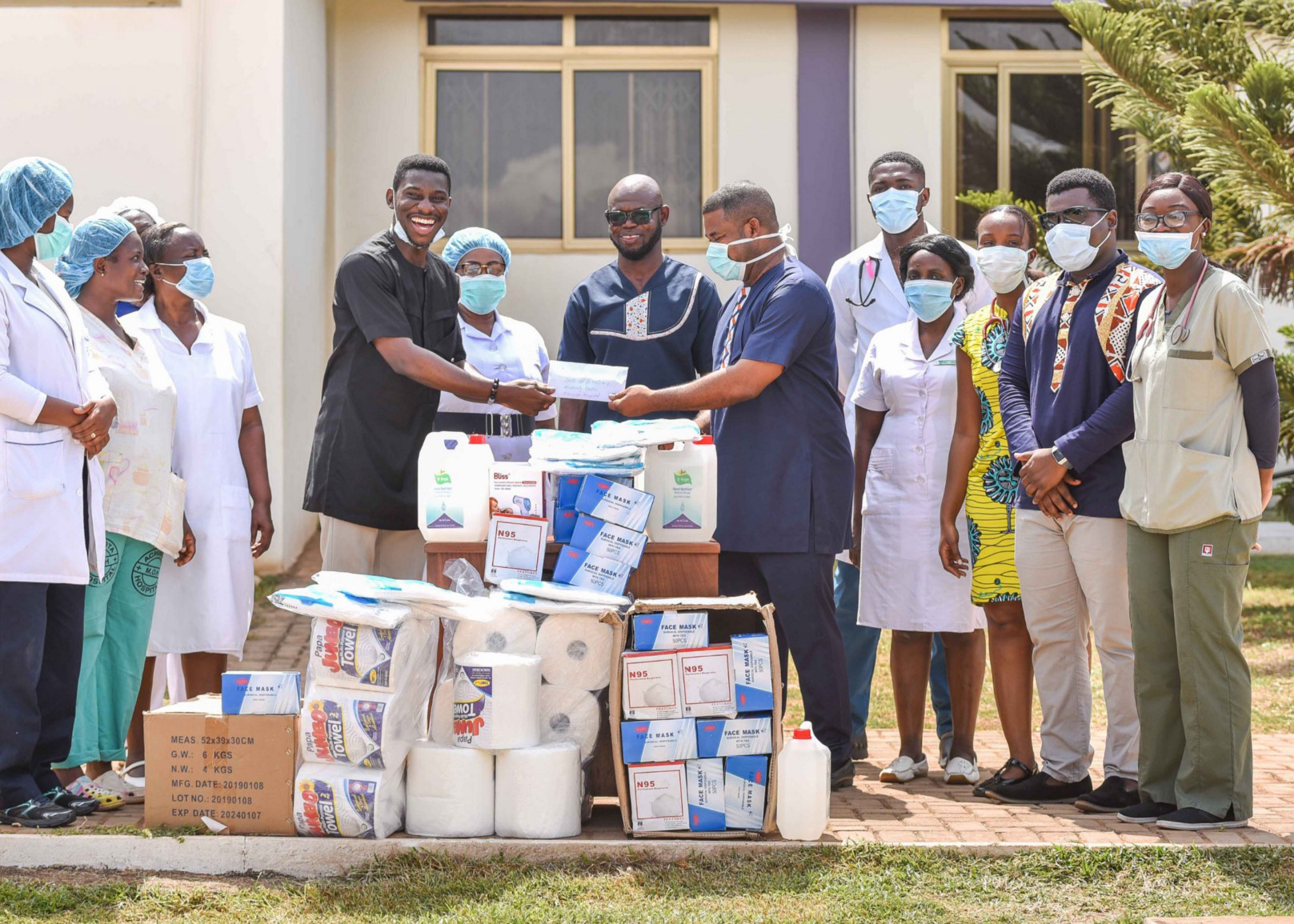
Rallying support for healthcare facilities
Steven Odarteifio '12 raised funds to donate personal protective equipment and other essential items to Achimota Hospital in Accra. “We didn’t want to wait to hear about positive cases at this facility before we thought of ways to help,” shares Steven. “We hope this gesture encourages other individuals, who can, to lend assistance to health workers.”
Filling welfare gaps for Kayayei
“Kayayei (head porters) depend on active market places to make a living,” shares Teni Agana ‘18. Together with Rose Dodd ’09 and other volunteers, Teni helped retool a smock-making business to produce face masks. She also fundraised to supplement the income of Kayayei, and provide meals daily for the women and their families.
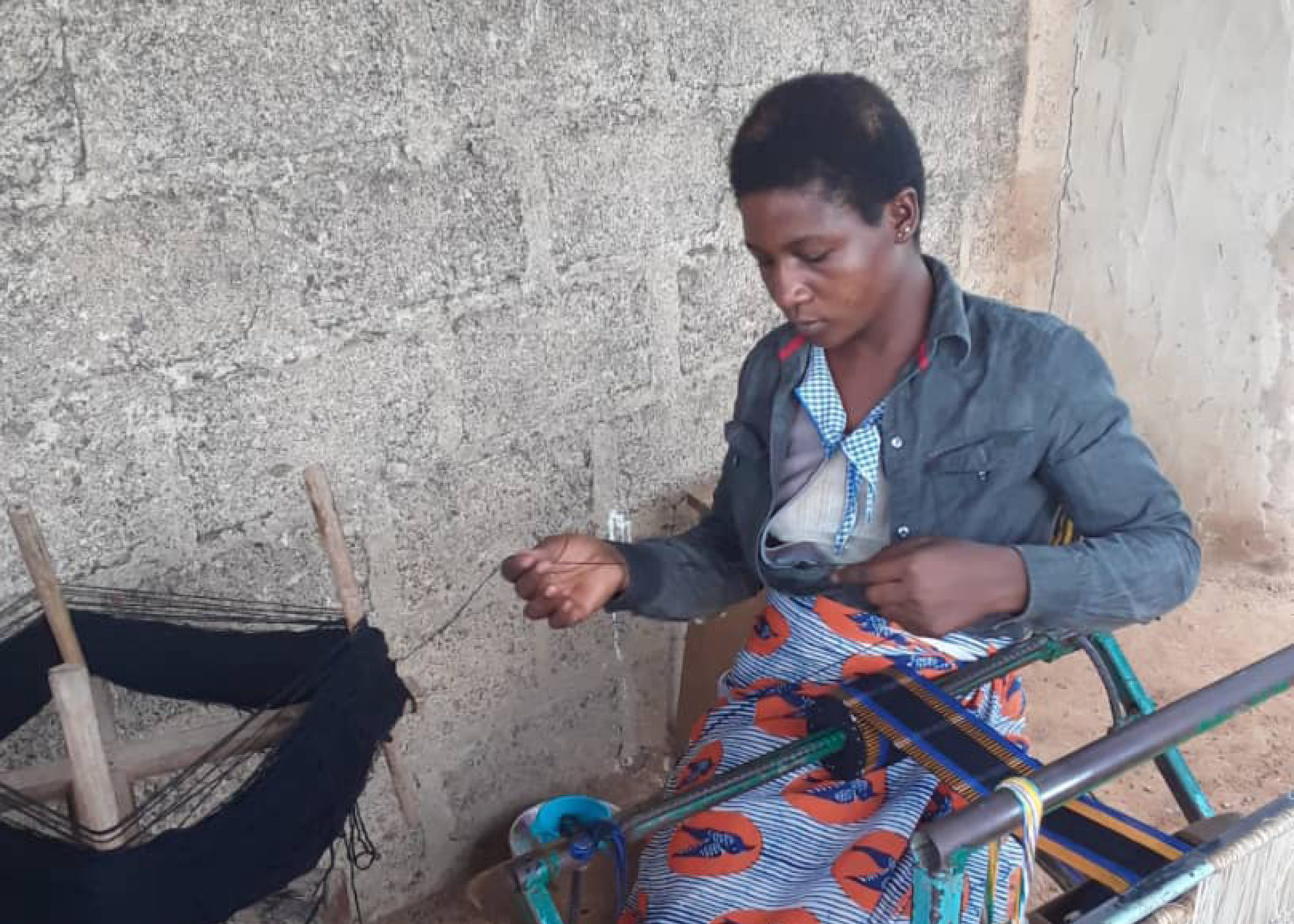
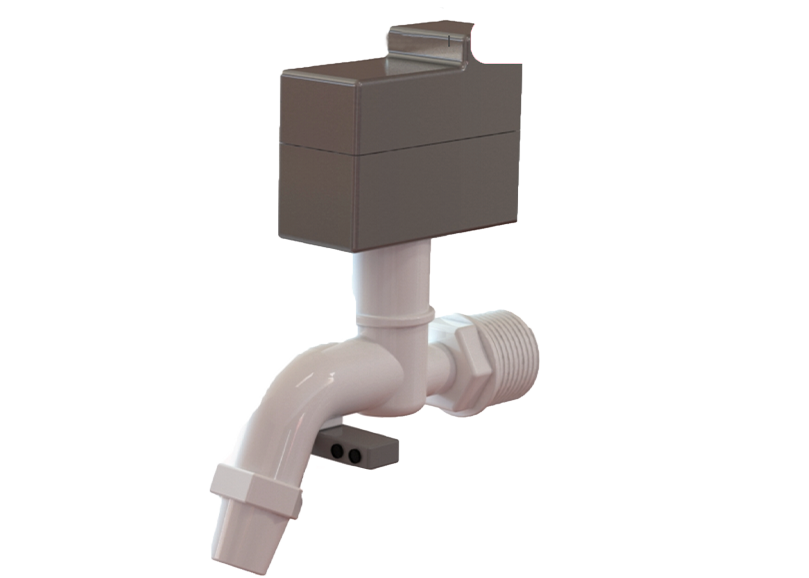
Providing a low-cost handwashing solution
With handwashing established as critical to fighting COVID-19, Derick Omari '18 designed an easy-to-install electronic hands-free faucet for homes and public spaces in underserved areas. The devices can be installed in minutes on various water storage containers with minimal training.
Simplifying COVID-19 data for the public
Benedict Quartey '18 built a data aggregation platform to provide simplified COVID-19 data for the public. “There was a lot of different data being published, and it was difficult to make sense of it,” shares Benedict. “I thought that if I struggled to understand it, perhaps others would too. And this was a way to help reduce that.”
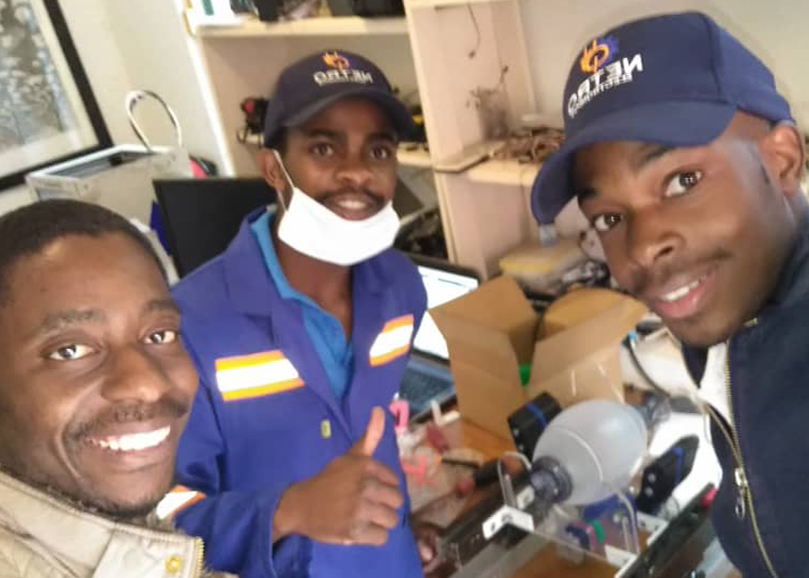
Producing low-cost ventilators
In Zimbabwe, Eugene Jamu '19 has been working with a team of engineers to manufacture low-cost ventilators for hospitals in the country using the MIT Emergency Ventilator model.
Looking Forward
Based on our current understanding of COVID-19, Ashesi will operate entirely online and conduct all university activities remotely for Semester One of the 2020/2021 academic year, starting August 31st. We understand that the connections and experiences we share at Ashesi will not be easily replicated online. However, we are excited about this chance to strengthen the spirit of innovative action that defines us, and the extraordinary opportunity within this period to pursue ideas that may have seemed far away in the past. The decisions we make now have the potential to redefine the Ashesi experience and will impact many generations of students to come. We look forward to sharing further information about this new path, and other ongoing efforts to deepen Ashesi's work and impact.
How You Can Help
Philanthropy can support emergency scholarships for students and families who have been impacted by the pandemic — and can amplify Ashesi's investment in the equipment, software, internet connectivity, and training necessary to strengthen online learning.
Donate
